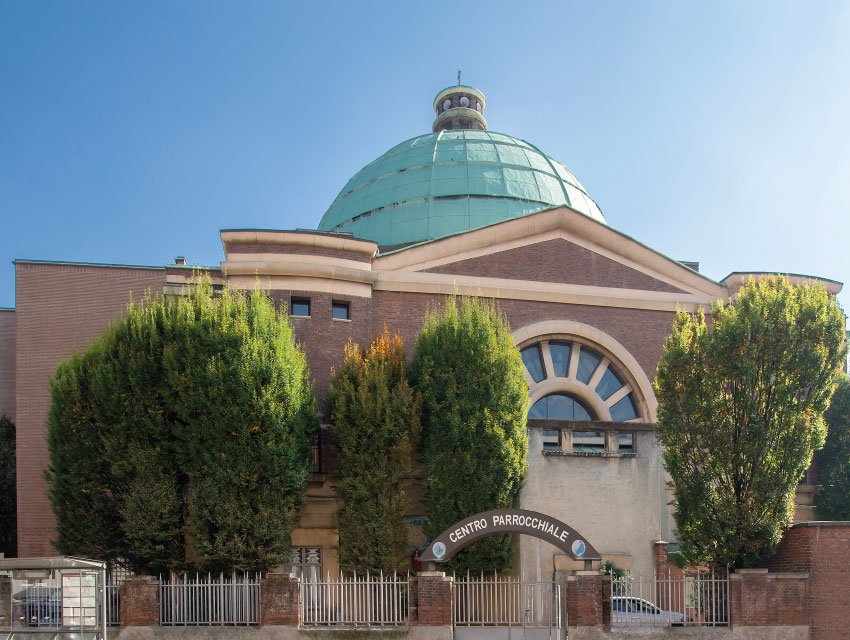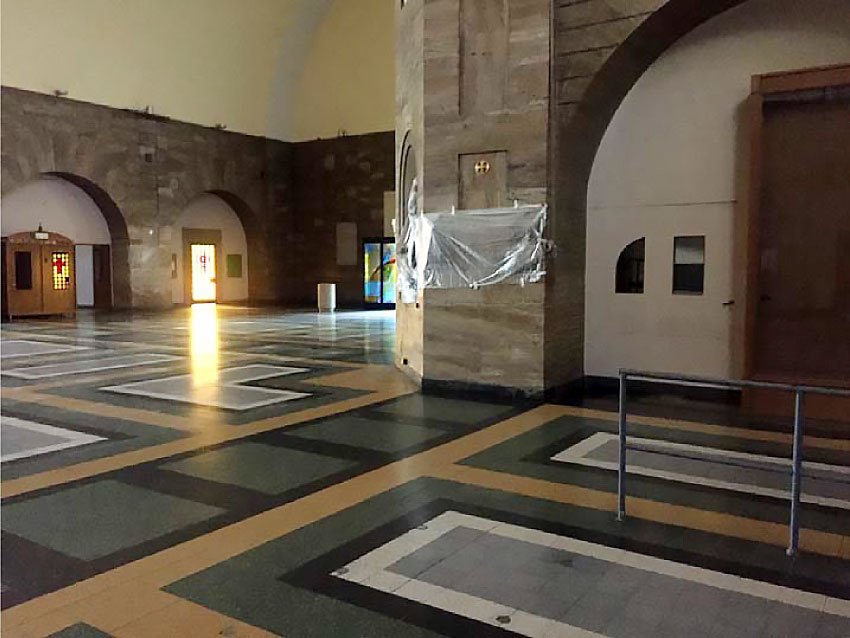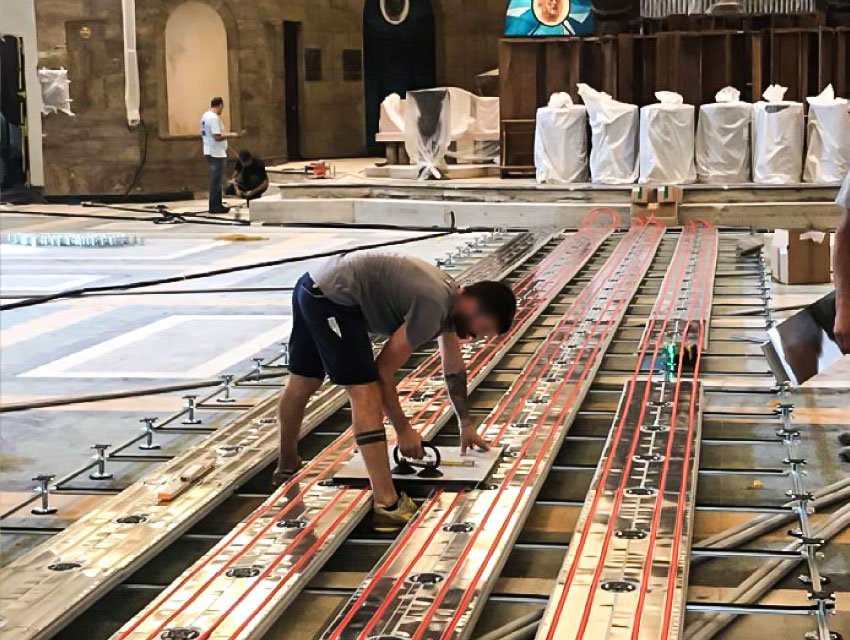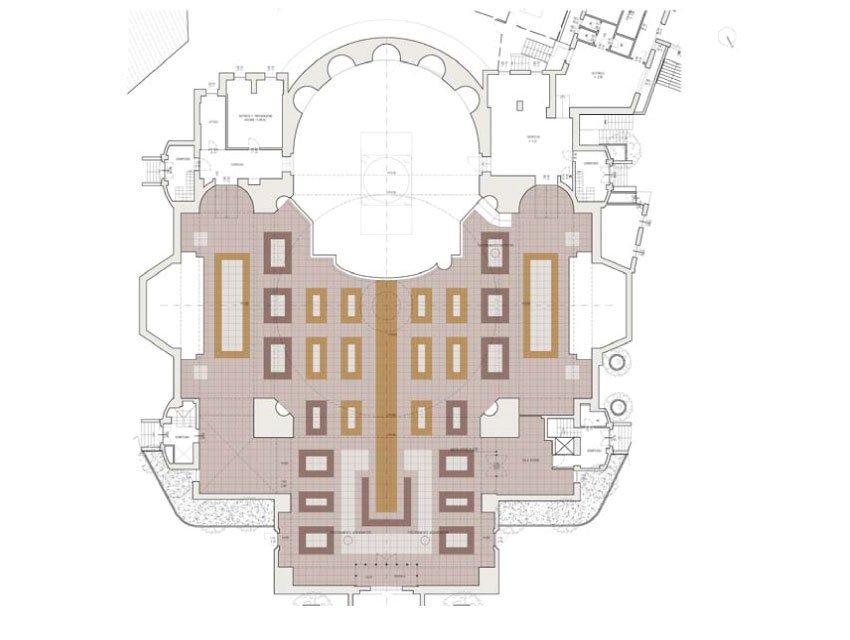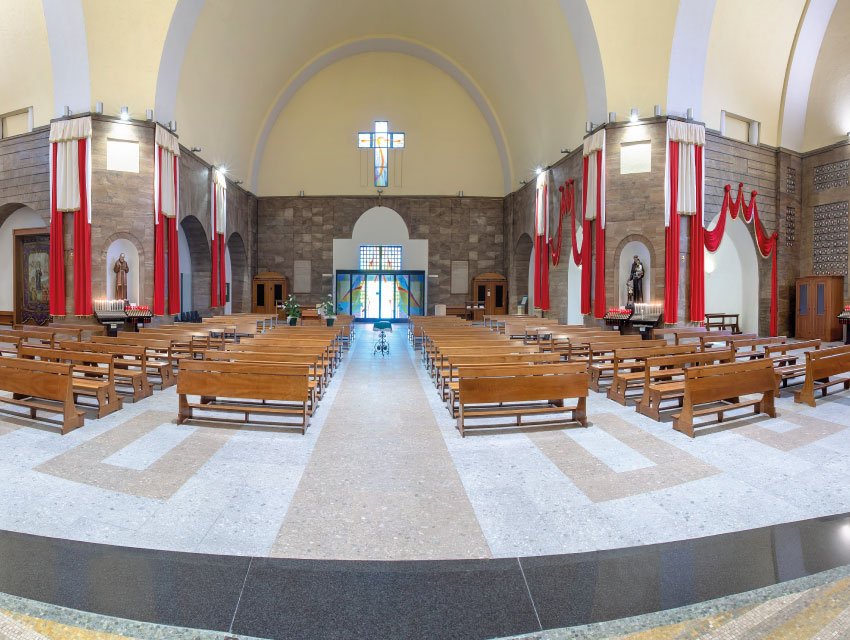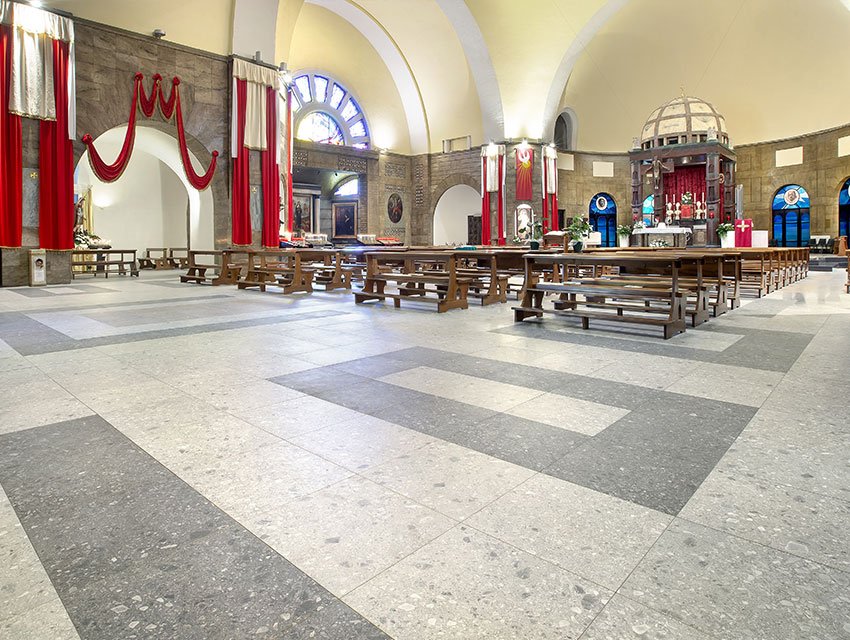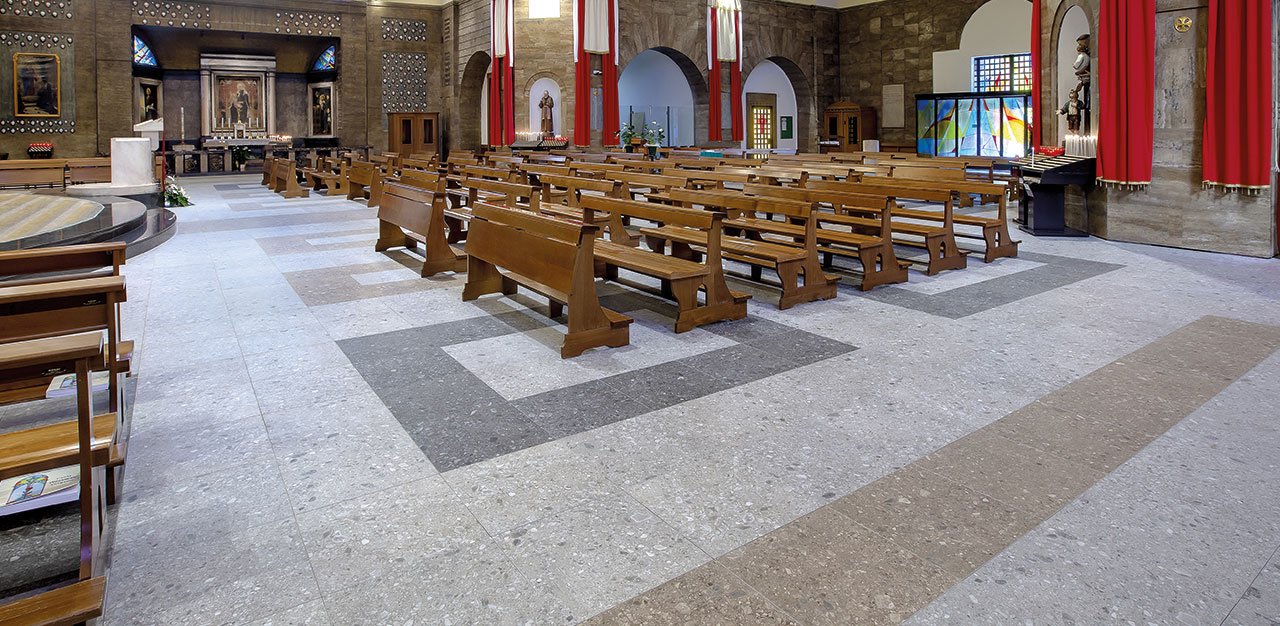
Home / News / Pavimenti Sopraelevati /
If you thought that a modern solution like the raised floor had nothing in common with the religious places, we are here to prove you the opposite!
We’ll tell it through the words of the architect Luigi Corti of Studio Agape who, in his report “ HISTORICAL BUILDINGS: INNOVATIVE NON-INVASIVE TECHNICAL SOLUTIONS THAT PRESERVE THE MEMORY” talks about the central role of the Nesite raised floor in the renovation of a church in Milan.
External S. Michele and S. Rita church, Milan
«The project examined» – starts arch. Corti- «concerns the conservative rehabilitation of the church of S. Michele and S. Rita, in the south-western area of the city.
The church flooring has been recognized as a fundamental element of the liturgy, and an element characterizing the building itself.
The idea of not demolishing the existing flooring, but investing in an innovative solution with raised radiant panels, was positively shared both by the Superintendency of Architectural Heritage of the Lombardy Region and by the Sacred Art Commission of the Archiepiscopal Curia of Milan»»
Original flooring of the church
The conservative rehabilitation is the set of activities aimed at returning to a building its own functionality and / or providing it with the standards required by current regulations. This intervention contributes to the functional, static and hygienic improvement of the building, allowing at the same time to modify both the structure and the plan.
«The solution designed and proposed for the project» – he continues – «came from choices that were considered essential, such as:
- the use of a raised floor system that could be integrated with a radiant system, having at the same time the availability of flexible spaces for the distribution of other visible and inspectable systems (electrical, phonic, water, etc.);
- the use of tiles in the 60 x 60 cm format, considered suitable to obtain a not excessively fractionated flooring and that allow the realization of a drawing in the liturgical area. »
Start installation
The project requirements implied, therefore, not only the use of the advantages of the raised floor (versatility, inspectability, easy maintenance etc.), but also the integration of a floor heating system that did not alter these prerogatives.
Consequently, it was decided to continue with the installation of the Diffuse system, the radiant floor with high energy efficiency that maintains total accessibility.
Stability – inspectability – flexibility Diffuse system
«The raised floor panels» – concludes arch. Corti – “were then coupled with a ceramic that could faithfully reproduce the elegance of Ceppo di Gré, a typically Italian stone characterized by the presence of large “pebbles “, which blend well with the travertine cladding on the walls and the mosaic of the altar, both to be preserved.
The drawing of the new flooring was created by using four different colours. »
Drawing of the new flooring
END RESULT
